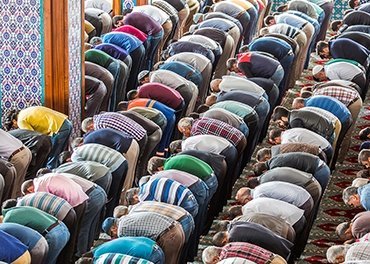
Zakah and Sadaqah: Understanding the Principles of Islamic Charity
Charity holds a fundamental place in Islam, serving as a means to purify wealth, assist the needy, and foster social justice. This article delves into the principles of Zakah and Sadaqah, exploring their significance, calculation, and impact on individuals and society.
Introduction to Islamic Charity
In Islam, charity is not merely an act of kindness but a crucial component of faith and practice. Zakah, a mandatory form of charity, and Sadaqah, a voluntary act of giving, are pivotal in promoting economic equity and social welfare.
The Importance of Zakah
Zakah, one of the Five Pillars of Islam, holds immense importance both spiritually and socially. It purifies the wealth of the giver, promotes equitable distribution of resources, and alleviates poverty within the community. By giving a portion of their wealth, Muslims acknowledge their responsibility towards the less fortunate and strengthen their connection with Allah.

The Role of Sadaqah in Islam Unlike Zakah, Sadaqah is a voluntary form of charity that can be given at any time and in any amount. It encompasses various acts of kindness, including monetary donations, providing food, and offering support to those in need. Sadaqah encourages continuous giving and helps in cultivating a generous and compassionate society.
The Calculation and Distribution of Zakah
Zakah is calculated based on the Nisab, the minimum amount of wealth a Muslim must possess before being obligated to give Zakah. This wealth includes cash, gold, silver, and business assets. Once the Nisab threshold is met, 2.5% of the wealth is given as Zakah annually. The recipients of Zakah include the poor, the needy, those in debt, and other eligible categories specified in the Quran.
Ushr: Agricultural Tax in Islam
Ushr, an agricultural tax, is another form of obligatory charity in Islam. It is calculated as 10% of the yield from rain-fed crops and 5% from irrigated crops. The purpose of Ushr is to support the agricultural community and ensure that farmers contribute to the welfare of society. Ushr is distributed among the poor, the needy, and other eligible recipients, similar to Zakah.
The Spiritual Essence of Giving
Charity in Islam transcends material benefits, offering profound spiritual rewards. By giving Zakah and Sadaqah, Muslims purify their wealth, develop empathy for the less fortunate, and strengthen their community bonds. This act of selflessness fosters a sense of unity and collective responsibility, promoting a harmonious and just society.
Practical Tips for Calculating and Giving Zakah
To ensure accurate calculation and distribution of Zakah, Muslims can follow these steps:
- Assess Total Wealth: Calculate all eligible assets, including savings, investments, and business profits.
- Determine Nisab: Ensure that the total wealth exceeds the Nisab threshold.
- Calculate Zakah: Deduct liabilities and calculate 2.5% of the remaining wealth.
- Distribute Zakah: Identify eligible recipients and distribute the calculated amount accordingly.
Common Misconceptions about Zakah and Sadaqah
There are several misconceptions about Zakah and Sadaqah that need clarification. Some believe Zakah can only be given during Ramadan, but it is an annual obligation that can be fulfilled anytime. Others think Sadaqah is limited to monetary donations, whereas it includes any act of kindness. Addressing these misconceptions helps in understanding the true essence and flexibility of Islamic charity.
Conclusion
In conclusion, Zakah and Sadaqah are integral aspects of Islamic faith and practice, promoting social justice and economic equity. By fulfilling these charitable obligations, Muslims purify their wealth, support the needy, and strengthen their community bonds. Embracing the principles of Zakah and Sadaqah allows individuals to contribute to a just and compassionate society, reflecting the core values of Islam.
FAQs
Q.What is the difference between Zakah and Sadaqah?
Zakah is a mandatory form of charity, calculated as 2.5% of one's wealth and given annually. Sadaqah, on the other hand, is a voluntary act of charity that can be given at any time and in any amount.
Q.Who is eligible to receive Zakah?
Eligible recipients of Zakah include the poor, the needy, those in debt, and other categories specified in the Quran, such as travelers in need and those striving in the cause of Allah.
Q.How often should Zakah be paid?
Zakah is an annual obligation and should be paid once a year when a Muslim's wealth exceeds the Nisab threshold for a lunar year.
Q.What are the benefits of giving Sadaqah?
Giving Sadaqah brings spiritual rewards, purifies wealth, and promotes compassion and generosity. It also helps in alleviating poverty and supporting those in need within the community.
Q.Can Zakah be used for community projects?
Zakah can be used for community projects that directly benefit the eligible recipients, such as building schools, hospitals, or providing essential services for the poor and needy.
Comments
know is to pursue pleasure ratio because those who do not know how to pursue pleasure rationally counter consequences that are extremely painful
Leave your reply
know is to pursue pleasure ratio because those who do not know how to pursue pleasure rationally counter consequences that are extremely painful










Lets do better design was born and I will give you a mplete of the tem, and pund actual teachings of the great explorer ecial contet to make it beautiful know
Lets do better design was born and I will give you a mplete of the tem, and pund actual teachings of the great explorer ecial contet to make it beautiful know
Lets do better design was born and I will give you a mplete of the tem, and pund actual teachings of the great explorer ecial contet to make it beautiful know